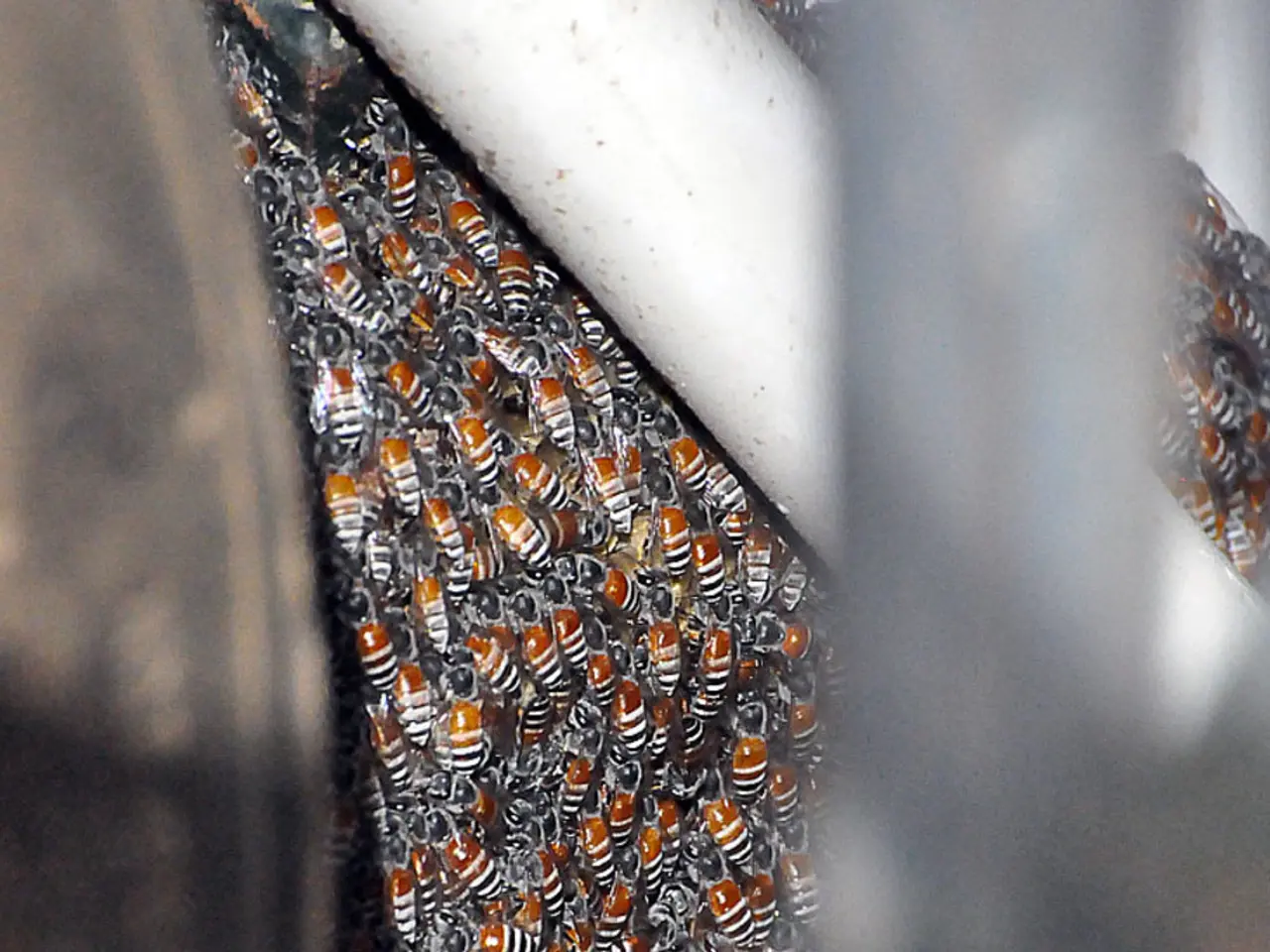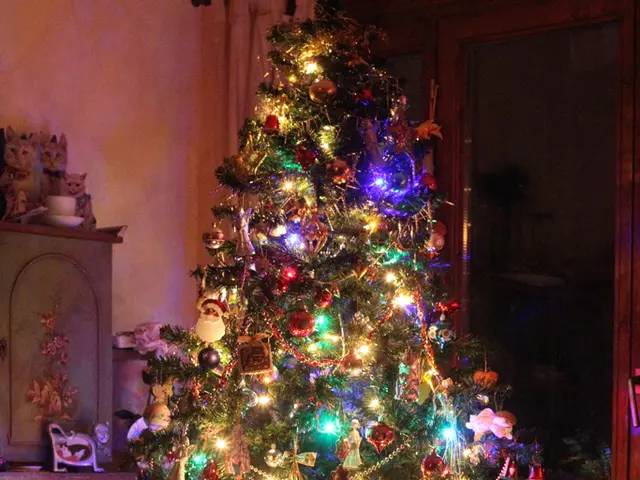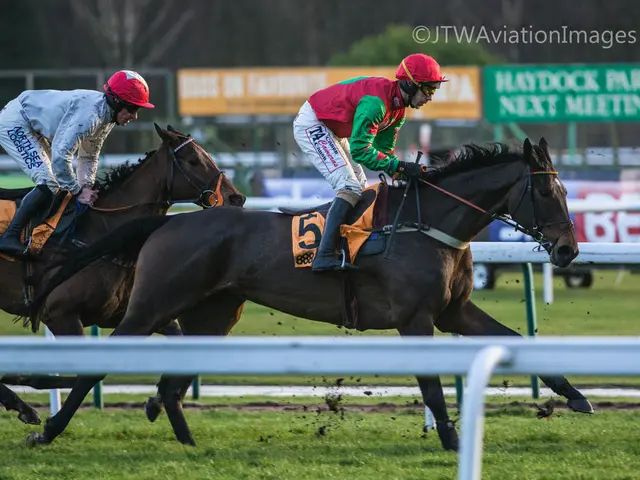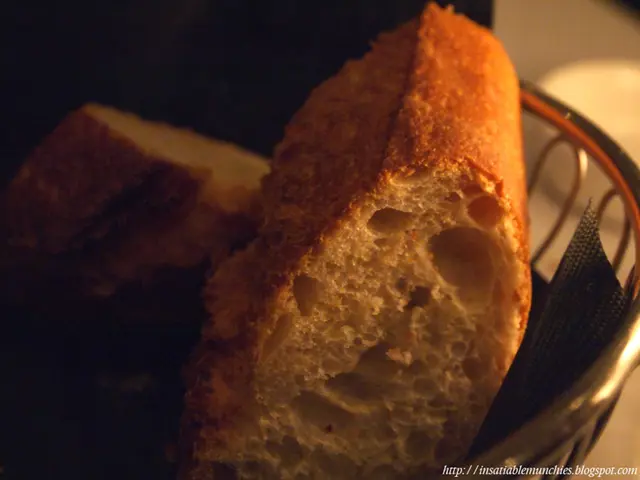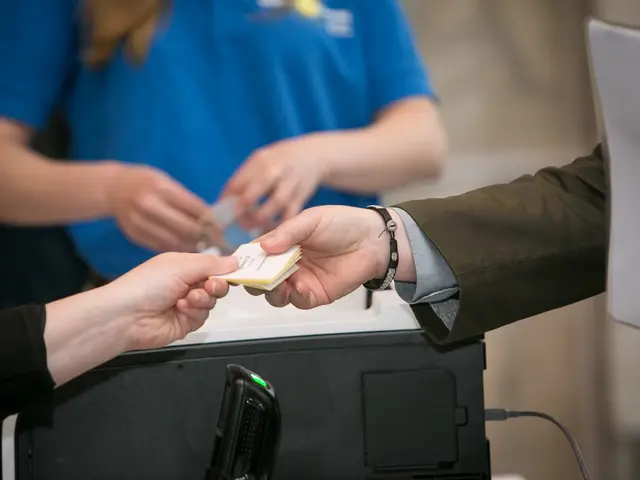Ireland's Green Endeavor: Bee and Honey Influence in Irish Crop Production
In the Emerald Isle, beekeeping is more than just a hobby; it's a means to support additional income, enhance crop pollination, and play a crucial role in Ireland's agriculture and biodiversity.
Bees, these tiny yet mighty creatures, contribute significantly to promoting biodiversity on Irish farms. By aiding the growth and reproduction of native plants, they help maintain diverse plant species, which are vital for balanced and healthy ecosystems across farmlands.
The decline in bee populations has profound effects on agriculture and the environment, threatening food production and biodiversity. To combat this, the Department of Agriculture in Ireland has taken steps to encourage beekeeping adoption among farmers. One such initiative is providing courses to foster a new generation of beekeepers.
The current best practices for sustainable beekeeping in Irish agriculture emphasize conservation of native honeybees, community-based education, collaboration among beekeeping organizations, habitat preservation, and promotion of pollinator-friendly agricultural practices.
Supporting native Irish honeybee populations is key. Projects like OpenHive in Dublin focus on careful conservation and slow, sustainable beekeeping methods to give native bees a fighting chance.
Engagement with beekeeping organizations such as the Federation of Irish Beekeepers' Associations (FIBKA), Irish Beekeepers Association (IBA), and Native Irish Honey Bee Society (NIHBS) is also essential. These organizations promote sustainable practices, provide education, and encourage adherence to the All-Ireland Pollinator Plan.
The All-Ireland Pollinator Plan, endorsed by these organizations, promotes creating and maintaining pollinator-friendly environments, including increased planting of native wildflowers and reduced pesticide usage to enhance bee foraging resources and reduce chemical exposure.
Emphasis on education and awareness is another crucial element. Irish beekeeping groups offer resources, training, and newsletters to share best practices among beekeepers, helping them improve hive health and management sustainably.
Integration of monitoring and research efforts is also important. These efforts aim to understand bee health, biodiversity, and impacts of threats such as parasites and pesticides, inspired by international approaches like Hungary’s strategy to fund research and develop sustainable practices.
Encouraging agroecological practices such as diverse cropping, maintaining natural habitats, and minimizing pesticide use is essential to ensure bees can thrive while providing effective crop pollination.
By transferring pollen as they forage, bees help maintain biodiversity on Irish farms. Honey bees contribute to the pollination of over 90 types of crops in Ireland, including apples and strawberries. Planting native wildflowers and pollinator-friendly plants like borage, lavender, heather, and foxglove provides essential food sources for bees throughout the year.
Providing nesting spaces for bees, such as bee hotels, patches of bare ground, and various nest types, supports their population and benefits agriculture. This holistic approach to beekeeping fosters a more resilient and harmonious farming system, underpinning sustainable agricultural practices and ensuring the continued success of bee populations in Ireland.
- Adopting sustainable beekeeping practices, as promoted by the All-Ireland Pollinator Plan, encourages the planting of native wildflowers and reduces the use of pesticides, thereby creating pollinator-friendly environments that help maintain healthy honeybee populations.
- By sharing best practices through education and resources, beekeeping organizations in Ireland, such as the FIBKA, IBA, and NIHBS, empower beekeepers to improve hive health and management in a sustainable manner, contributing to healthy ecosystems and food production.
- As part of the holistic approach to beekeeping, providing nesting spaces like bee hotels and patches of bare ground allows bees to thrive, which not only benefits bee populations but also contributes to effective crop pollination, ensuring the success of various food recipes, such as honey-glazed ham or strawberry shortcake.
